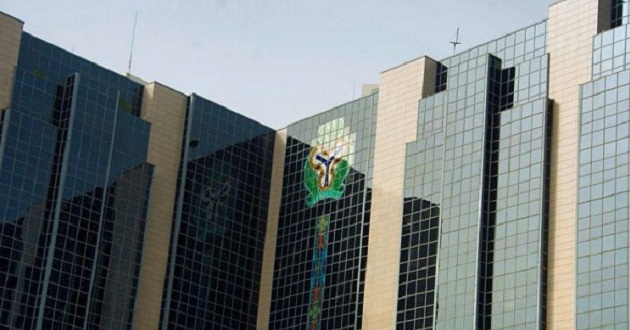Business
CBN puts Federal Govt’s deficit in 3 months at N910.4bn

The Central Bank of Nigeria, CBN, has said that the Federal Government recorded fiscal deficit of N910.41 billion in the fourth quarter of 2018.
The CBN stated this in its latest economic report.
It said: “Federally-collected revenue, at N2.41tn, in the fourth quarter of 2018, was 27.4 per cent and 4.8 per cent lower than the estimate and the receipts in the preceding quarter, respectively.
“The development relative to budget estimate was due to the shortfall in receipts from both oil and non-oil revenue in the reviewed quarter. Federal Government estimated retained revenue and total expenditures were N916.44bn and N1.826tn, respectively, resulting in an estimated deficit of N910.41bn in the fourth quarter of 2018.”
According to the report, the cessation of rainfall in the period led to widespread dryness across the country.
The report also said that agricultural activities in the fourth quarter were dominated by harvesting of tubers, grains and vegetables.
“In the livestock sub-sector, farmers continued with the breeding of poultry birds and fattening of cattle in anticipation of the end of year sales,” the CBN said.
It said the end-period headline inflation on year-on-year and 12-month moving average bases for the review period were 11.44 per cent and 12.10 per cent, respectively.
The apex bank maintained a non-expansionary monetary policy stance in the fourth quarter of 2018, aimed at further curbing inflationary pressure.
Broad money supply (M3), on a quarter-on-quarter basis, grew by 8.3 per cent to N33.42tn at end-December 2018, compared with the growth of 5.1 per cent at end-September 2018.
Read also: CBN report shows slow manufacturing, inventories growth in January
The development, the report said reflected, wholly, the 4.5 per cent increase in domestic credit (net) of the banking system, adding that broad money supply grew by 16.6 per cent, compared with the 7.6 per cent and 0.6 per cent growth recorded at the end of the preceding quarter of 2018 and the corresponding quarter of 2017, respectively.
The report also indicated that growth in M3 was due to the 6.4 per cent and 18.5 per cent increase in domestic credit (net) and foreign assets (net) of the banking system, respectively.
On a quarter-on-quarter basis, narrow money supply (M1), rose by 9.2 per cent, compared with 0.5 per cent and 11.0 per cent at the end of the preceding quarter, due largely to the 19.4 per cent and 7.5 increase in its currency outside banks and demand deposit components, respectively.
Developments in banks’ deposit rates were mixed, while lending rates trended downwards in the review quarter.
With the exception of the one-month and three-month deposit rates which fell by 0.26 and 0.04 percentage point to 8.79 per cent and 9.43 per cent, respectively, all other deposit rates of various maturities rose from a range of 3.68 – 10.10 per cent to 3.86 – 10.52 per cent at end-December 2018.
The CBN report further stated that average savings rate remained unchanged at 4.07 per cent, same as at the end of the third quarter of 2018, while the average term deposit rate rose by 0.12 percentage points to 8.63 per cent at end of the review quarter.
Join the conversation
Support Ripples Nigeria, hold up solutions journalism
Balanced, fearless journalism driven by data comes at huge financial costs.
As a media platform, we hold leadership accountable and will not trade the right to press freedom and free speech for a piece of cake.
If you like what we do, and are ready to uphold solutions journalism, kindly donate to the Ripples Nigeria cause.
Your support would help to ensure that citizens and institutions continue to have free access to credible and reliable information for societal development.






















